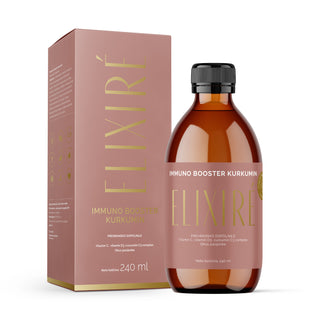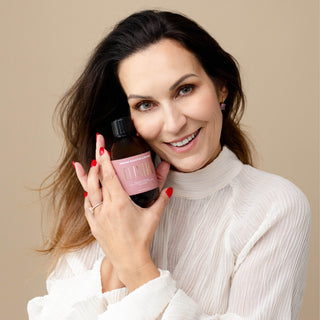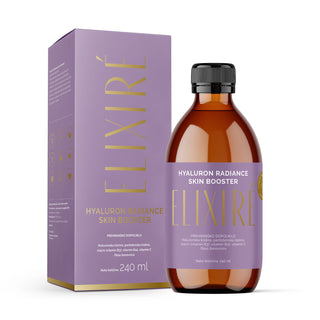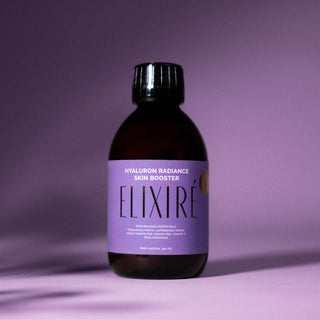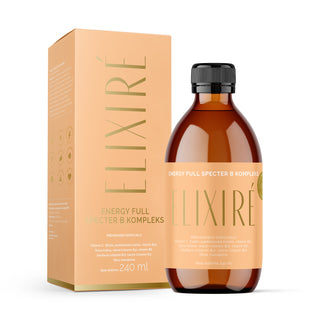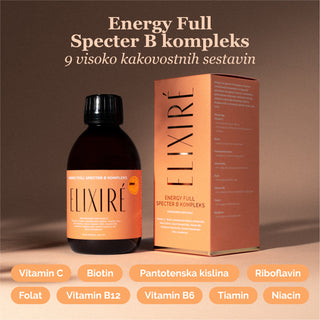Women's health as the future of wellness
When it comes to health, we often rely on science. But the history of research has one big problem – it has long been based primarily on the male body. For decades, clinical studies have excluded women because researchers believed that hormones and menstrual cycles were “too complicated.” (1*)
The result? A lack of data that truly reflects female physiology. This means that medications, dietary guidelines, and even wellness recommendations have often been more tailored to men than women.
At Elixiré, we believe it's time for a change. Women's health deserves more research, innovation, and rituals, which work with her body – not against it.
Why have women been ignored in research?
-
Historical context – In the 20th century, researchers often excluded women from clinical studies to “simplify” the results. (2*)
-
Hormonal “complexity” – the menstrual cycle was considered a disruptive factor, rather than a key part of understanding women's health.
-
Consequences – today we have a wealth of data on the effects of medications and dietary supplements on men, but much less on women. (3*)
That's why many women still don't have adequate solutions for problems related to their cycle, pregnancy, menopause, or stress.
A woman's body is not a "smaller version of a man's"
We often hear the phrase: “Women have the same needs as men, just in smaller quantities.” This is a myth. The female body is not a scaled-down version of the male – it is a completely different biological system.
-
Hormones (estrogen, progesterone) affect energy, metabolism, mood and skin condition. (4*)
-
The cycle brings four phases – menstruation, follicular, ovulation and luteal – each with a unique impact on well-being, energy and performance. (5*)
-
Life periods – puberty, pregnancy, postpartum, menopause – each phase requires different support. (6*)
Understanding these differences allows us to develop solutions that are truly effective for women.
A holistic approach to women's health
Women's health is not just a topic for a gynecologist or endocrinologist. It's a holistic picture:
-
Nutrition – A balanced diet rich in fiber, vitamins, and minerals supports hormonal balance. (7*)
-
Movement – regular activity, such as Pilates or yoga, affects happiness hormones and strengthens bones. (8*)
-
Sleep – quality sleep regulates cortisol and supports regeneration. (9*)
-
Psychological aspect – stress, anxiety and social pressures are often a greater challenge for women. (10*)
The solution therefore cannot be one pill – we need holistic wellness routines, which combine physical, mental and emotional support.
Why is wellness becoming a women's ritual?
The wellness industry has been transformed over the past decade. Women are at the center of this movement:
-
What 70% of global wellness spending is generated by women. (11*)
-
The nutritional supplement market is growing as women seek more natural and enjoyable ways to support their bodies.
-
Prevention is becoming more important than cure.
Wellness has become a way for women to take control of their bodies, health, and well-being.
Elixiré view: the advantage of liquid supplements
Capsules and tablets have one problem – we often forget to take them or they are not pleasant to use. Liquid supplements but they bring a different experience:
-
Better absorption in the body – Liquid forms (such as injections) allow direct delivery of the therapeutic agent into the bloodstream, ensuring high bioavailability and rapid onset of action. (12*)
-
Pleasant taste – a drink becomes an indulgence, not an obligation.
-
Ritual – a moment for yourself that connects health and well-being.
Examples of supporting rituals with Elixiré
-
Collagen + hyaluronic → support for skin that thins and loses elasticity over the years.
View product → Collagen + Hyaluron
-
B-complex → energy and vitality, especially during periods of greater stress.
View product → Elixiré B Complex | Liposomal Energy Full-Spectrum with all B vitamins
-
Immuno Booster Curcumin → support for the immune system and protection against oxidative stress.
View product → LIPOSOMAL CURCUMIN IMMUNO BOOSTER, dietary supplement
Every Elixiré product becomes a glass of well-being, which can be included in your morning or evening routine.
Why is the future of women's wellness bright?
-
Menopause it's no longer a taboo subject.
-
Mental health is an important part of conversations about well-being.
-
Beauty and health are intertwined into a unified, holistic approach.
Women are not a “special niche” – we represent the majority of the population and the majority of wellness spending.
At Elixiré, we believe that Women's health needs more research, more rituals, and enjoyable ways to supportEvery woman deserves to have science on her side – and to make wellness a moment of pleasure, not an obligation.
Literature: (*)
1 Source: Women's involvement in clinical trials: historical perspective and future implications, (KA Liu, NA Dipietro Mager), https://pubmed.ncbi.nlm.nih.gov/27011778/
2. Source: Sex and Gender Factors in Medical Studies Implications for Health and Clinical Practice, (VW Pinn), https://jamanetwork.com/journals/jama/article-abstract/195816
3. Source: Sex differences in pharmacokinetics predict adverse drug reactions in women, (I. Zucker, B.J. Prendergast), https://pubmed.ncbi.nlm.nih.gov/32503637/
4. Source: Menstruation and the menopausal transition, (SD Harlow, P. Paramsothy), https://pubmed.ncbi.nlm.nih.gov/21961722/
5. Source: Ovulation, a sign of health, (P. Vigil, C. Lyon, B. Flores, H. Rioseco, F. Serrano), https://pmc.ncbi.nlm.nih.gov/articles/PMC5730019/
6. Source: Reproductive hormones and the menopause transition, (N. Santoro, J.F. Randolph Jr), https://pubmed.ncbi.nlm.nih.gov/21961713/
7. Source: Diet and lifestyle in the prevention of ovulatory disorder infertility, (JE Chavarro, JW Rich-Edwards, BA Rosner, WC Willett), https://pubmed.ncbi.nlm.nih.gov/17978119/
8. Source: American College of Sports Medicine position stand.Quantity and quality of exercise for developing and maintaining cardiorespiratory, musculoskeletal, and neuromotor fitness in apparently healthy adults: guidance for prescribing exercise, (CE Garber, B. Blissmer, MR Deschenes, BA Franklin, MJ Lamonte, IM Lee, DC Nieman, DP Swain), https://pubmed.ncbi.nlm.nih.gov/21694556/
9. Source: Short- and long-term health consequences of sleep disruption, (G. Medic, M. Wille, ME Hemels), https://pubmed.ncbi.nlm.nih.gov/28579842/
10. Source: Why is depression more common among women than among men?, (C. Kuehner), https://pubmed.ncbi.nlm.nih.gov/27856392/
11. Source: EMPOWERING WELLNESS WORLDWIDE, (GLOBAL WELLNESS INSTITUTE), https://globalwellnessinstitute.org/
12. Source: FORMULATION AND EVALUATION OF AN INJECTABLE SOLUTION AS A DOSAGE FORM, (S. Thomas, S. Mahendran, R. Selvakumar), https://www.researchgate.net/publication/327887072_FORMULATION_AND_EVALUATION_OF_AN_INJECTABLE_SOLUTION_AS_A_DOSAGE_FORM



